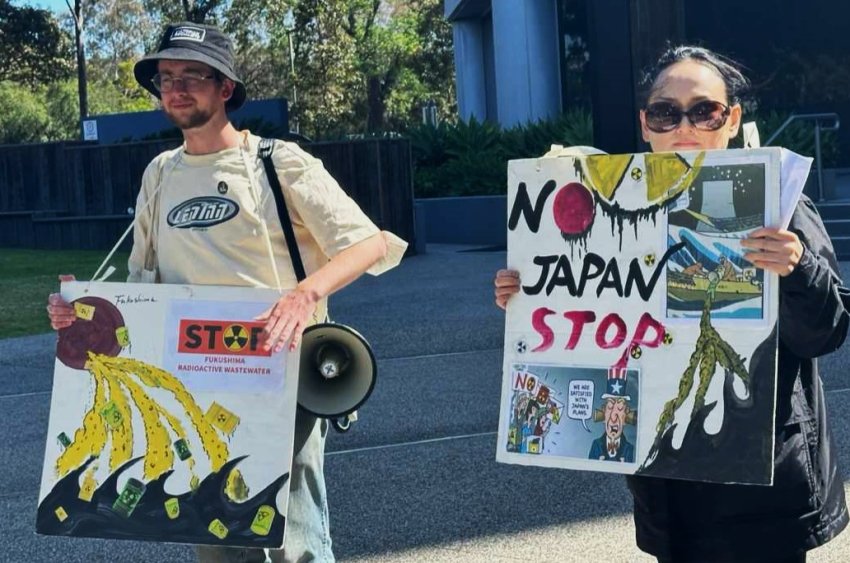
The Tokyo Electric Power Company (TEPCO) — which operated the Fukushima Daichii nuclear power plant that went into triple meltdown after an earthquake and tsunami in 2011 — began its third discharge of treated radioactive wastewater into the Pacific Ocean.
The International Atomic Energy Agency (IAEA), which is supposed to monitor the discharges that began in August, issued a statement saying that its experts tested the discharge and found it far below Japan’s operational limit of 1500 becquerels per litre (Bq/L). However, Korean Peoples' Action Against Japan’s Ocean Dumping of Radioactive Wastewater (KPA-AJODRW) said tests nonetheless show a rise in radioactive tritium in the discharged wastewater.
“On October 21, a tritium concentration of 22Bq/L was detected near the contaminated water outfall, the highest level of tritium detected since the dumping of contaminated water began in August, revealing a crisis for the ocean and humanity,” KPA-AJODRW said in a November 2 statement.
Problems with the Japanese government's contaminated water treatment process continue to emerge, the group said.
This includes equipment failures in the contaminated water tanks, where a substance believed to be rust is clogging the filters of the contaminated water pumps. Samples of contaminated water from the third discharge have also been found to contain higher levels of radioactive material than the second discharge.
“It was reported on October 25 that workers who were cleaning pipes at the contaminated water purification facility were exposed to contaminated water that spewed out.
“Despite all of these problems, the Japanese government and TEPCO have not stopped dumping Fukushima's nuclear contaminated water.
“What is most concerning is that the release into the ocean could last much longer than the 30 to 40 years the Japanese government claims. With not a single gram of melted nuclear fuel removed from the plant's interior, there's no telling how long the contaminated water will be there or what problems it will cause.”
The Pacific Collective on Nuclear Issues, composed of civil society groups, non-governmental organisations and movements in the Pacific, called on political leaders gathered for the 52nd Pacific Islands Forum (PIF) summit in the Cook Islands on November 8, to suspend Japan’s status as a PIF dialogue partner.
The Collective reminded the PIF summit that findings of the independent panel of scientific experts, commissioned by the Pacific Islands Forum, found that “data provided so far, to support Japan’s claim that the treated wastewater is safe, is inconsistent, unsound and therefore far from reliable”.
The groups were not reassured by the IAEA’s assurances that the discharged Fukushima wastewater is "safe".
“If the Japanese Government and TEPCO believe the radioactive wastewater is safe, they should be prepared to safely dispose of it within terrestrial Japan,” their statement said.
The Fukushima wastewater dumping is “a direct violation of our human rights,” it added.
“Pacific peoples are denied yet again our right to free, prior and informed consent on an issue that has direct implications on our sea of islands.
“Aside from being a brazen violation of international law, Japan’s behaviour and handling of this matter is an affront to the very sovereignty of Pacific states and unbecoming of a Dialogue partner of the Pacific Islands Forum.”